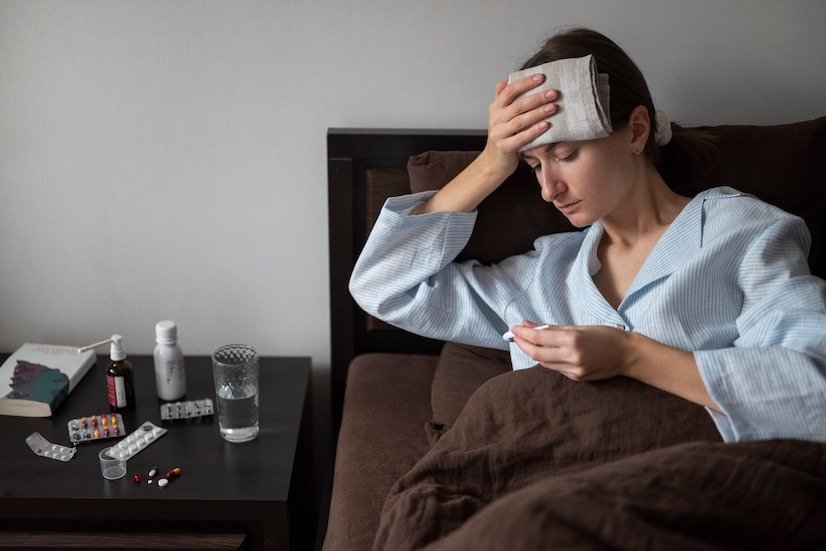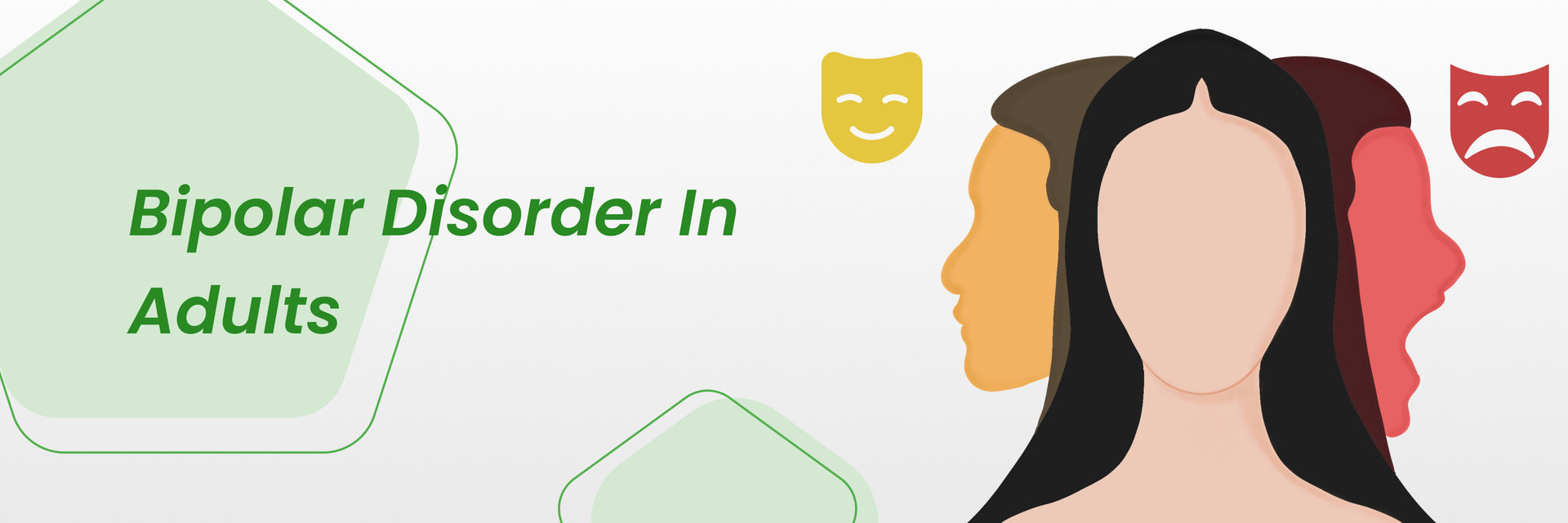
Symptoms of generalized anxiety disorders with panic attacks
The symptoms of generalized anxiety disorder with panic attacks may vary from person to person. However, the most common symptoms that can be seen among people are listed below:
- Physical symptoms
- Fatigue
- Trouble falling asleep
- Pain and tension in muscles
- Increased heart rate
- Feeling trembles and twitchy
- Sweating and feeling nausea
- Diarrhea or Irritable bowel syndrome
- Feeling choked
- GI problems
- Emotional symptoms
- Excessive or persistent worry about everyday activities and events
- Feelings of apprehensions
- Felling scared or dreadful
- Being nervous or easily startled
- Irritability and restlessness
- Lack of concentration
- Avoiding panic-triggering situations
- Behavioral symptoms
- Social withdrawal or isolation
- Seeking reassurance from others
- Procrastination and indecisiveness
- Obsessive or compulsive behaviors to reduce anxiety
- Excessive smoking
If you have symptoms similar to the ones mentioned above, it is necessary that you go to your doctor. Discuss the problems and get proper diagnosis and treatment.
Take the first step to recovery. Get in touch with us for your treatment.
Let’s look at what causes GAD and panic attacks!

What are the causes of generalized anxiety disorder and panic attacks?
According to a research study by the NCBI, there are various factors that are responsible for causing generalized anxiety disorder and panic attacks. There is a relationship between anxiety disorders and neurobiological factors like genetics, brain chemistry, and environmental factors.
- Genetics- The study shows that genetic factors play a role in causing GAD and panic attacks. It is found that individuals with a family history of anxiety disorders are more likely to develop the disorder themselves.
- Brain Chemistry- Imbalances in the levels of neurotransmitters like serotonin, norepinephrine, and GABA can cause anxiety disorders. These imbalances are a result of various factors. It includes genetics, stress, and environmental factors.
- Environmental factors- Traumatic life events, stress, and childhood experiences increase the risk of developing anxiety disorders. These factors cause changes in brain chemistry and can be responsible for causing GAD and panic attacks.
As per the study, anxiety disorders are comorbid with other mental disorders like depression and substance abuse. Also, it mentions that factors like socioeconomic status and access to healthcare can also cause anxiety disorders.
Overall, the study suggests that GAD and panic attacks are complex. They are caused by various factors, including neurobiological and environmental factors.
Now the question arises how can GAD be diagnosed? Read below to find out!

What is the diagnosis of generalized anxiety disorder and panic attacks?
The diagnosis of
generalized anxiety disorder requires a comprehensive evaluation by a mental health professional. The evaluation process may include the following:
- Physical examination - The doctor may suggest some physical tests. This is done to rule out any other medical condition that may have similar symptoms.
- Psychiatric evaluation- The doctor assesses the patient’s mental health. They take into consideration previous diagnoses, treatments, and medications if any. They will take into account the symptoms in the patients, the duration of symptoms, and their severity.
- Diagnostic criteria-The Doctors use a Diagnostic and Statistical Manual of Mental Disorders (DSM-5) criteria. They use this to diagnose GAD with panic attacks. It outlines a specific criterion that must be met to get a diagnosis of GAD with panic attacks.
- Psychological testing-Tests and tools like questionnaires and assessments are used to evaluate mental health symptoms.
According to Lauraconteuse who shares the best tips on personal growth, self-love & self-care states that
Children and adolescents can develop GAD with panic attacks. In fact, anxiety disorders are one of the most common mental health problems in children and adolescents. According to the National Institute of Mental Health, around 32% of adolescents will experience an anxiety disorder at some point in their lives. Symptoms of GAD and panic attacks in children and adolescents may manifest differently than in adults. For example, children may express their worries through physical complaints such as headaches or stomachaches. They may also have difficulty concentrating or being excessively self-conscious or self-critical.
The most important thing to know is what treatments are available. Let's take a look at them!

What are the treatment options for generalized anxiety disorder with panic attacks?
Generalized anxiety disorder and panic attacks can be treated in the following ways:
- Medications
- Anti-anxiety medicines like benzodiazepine can help lessen anxiety. This aids in reducing panic and worries over time. However, these medicines are prescribed for a short period of time. Later. They can be given in combination with antidepressants.
- Antidepressants- These medicines can aid in managing anxiety disorders. They work by adjusting how the brain processes certain chemicals. They process the chemicals in a way that enhances mood and relieves stress. You have to be patient to see the effect of these medicines. Hence, before deciding to stop the medications consult with your doctor.
- Beta-Blockers- These are used for high blood pressure and help in alleviating some anxiety symptoms. They can ease fast heartbeats, shaking, and trembling sensations.
Please Note: We do not promote using any drug or medications. Taking help from doctors is recommended before taking any medications. Depending on your symptoms, your doctor will decide what kind of medication is best for you.
- Psychotherapy is another treatment option available for treating generalized anxiety disorder with panic attacks. These therapies help you deal with your emotions.
- Cognitive behavioral therapy- This is the most common type of psychotherapy. This therapy aids you to understand your thought patterns and behavior. You get to know which things are causing disturbing feelings. You can then work on them and change them.
- Exposure therapy- It mostly deals with your fears that cause anxiety. This therapy exposes you to situations you try to avoid. This will help you cope with the anxiety. The doctor also suggests relaxation exercises to calm your feelings.
- Making changes in your lifestyle can be beneficial in managing anxiety. Making the following changes in your lifestyle will go a long way:
- Reducing your intake of caffeine.
- Regular exercise
- A healthy and balanced diet
- Proper and adequate sleep.
According to Health Canal
Mindfulness practices such as meditation or yoga are helpful for people with GAD, as is energy work such as acupuncture or Reiki. Talk therapy with a mental health professional is especially beneficial for people with GAD. Many herbal remedies are known to help with sleep or calm the nervous system which may be helpful for people with GAD.
What are the co-occurring disorders with generalized anxiety disorder and panic attacks?
There are various mental disorders that occur along with generalized anxiety disorder and panic attacks.
The comorbidities include:
- Major depressive disorder
- Bipolar disorder
- Anxiety disorder
- Substance abuse disorder
As per a research paper, patients with GAD and other disorders are at risk for impairment, disability, and suicide.
Risk Factors for generalized anxiety disorder with panic attacks
The following factors can increase your risk of anxiety disorders:
- Trauma- Children who have gone through abuse trauma have very high chances of developing an anxiety disorder. They can develop it at any stage of their lives. If you experience trauma as an adult, then also you can develop anxiety disorders later on.
- Illness induced stress-Illness or serious health conditions can cause significant worry and stress. This leads to GAD with panic attacks.
- Chronic stress- A major event or prolonged stress may trigger excessive anxiety. Like the death of a loved one, work stress, or financial worries.
- Personality types- Certain personality types are more prone to anxiety disorders.
- Other mental disorders- Anxiety disorders often co-occur with other mental health disorders, such as depression.
- Family history- Having a family history of anxiety disorders can increase the risk of developing one.
- Substance abuse- Substance misuse or withdrawal from drugs or alcohol can cause or worsen anxiety.
References:






